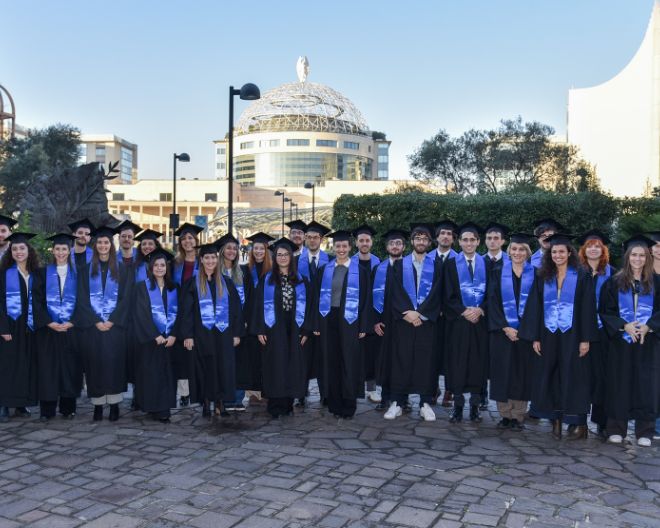/resolutions/res-l992x10000/Workshop_Generality_Impredicativity(1).png)
The Workshop Generality and Impredicativity will take place on February 26th 2025
At Vita-Salute San Raffaele University
Campus Mi2 - Donatello building - Room DO 206
It will also be possibile to join the workshop remotely, via Microsoft Teams, using this link.
Program:
- 9.00-10.00 Crispin Wright (University of Stirling) – online
Is classical second-order logic with full comprehension a fitting proof-theory for the epistemological ambitions of neo-logicism about arithmetic?
There have, for more than a century, been various misgivings about the claim of classical second-order logic with full comprehension (C2OL) to count as ‘proper logic’, where proper logic had better be a deductive system that is innocent of metaphysical and epistemological hostages and provides a reliable medium for the deduction of truths from truths. I’ll focus on whether the impredicativity of C2OL gives rise to a legitimate such concern and whether, as a result, the need for impredicative quantification in the deduction of the Peano Axioms from Hume’s Principle gives cause to doubt the epistemological significance of that deduction, even if the neo-logicist account of the credentials of Hume’s principle itself is uncompromised. - 10.00-11.00 Francisca Silva (University of St. Andrews):
Impredicativity and Grounding
Ever since the discovery of Russell’s paradox for naïve set theory, and Russell’s own proposed solution to it in terms of a stratified type theory that much ink has been put down on paper on whether impredicative definitions, which we may count as those that make reference in the definiens to the term in the definiendum, are acceptable, with special emphasis in the context of what conditions define a set. On a popular way out of the contradiction that Russell’s paradox ensues, what goes wrong with the Russell ‘set’, defined as the set of all sets which are not self-membered, is that one quantifies over all sets, including the putative Russell set, in the definiens. Yet, other equally impredicative definitions seem intuitively to be in perfectly good standing, including the definition of least upper bound, which quantify in the definiens over all the suprema of a given set, including the least upper bound itself. In fact, this seems to just be a feature of definitions of superlative terms: one natural way to specify who the tallest person in a room is, is exactly by making reference to all the people in the room.
Such cases, serve as motivation to at least explore the thought that the problem doesn’t lie with quantification, but that there might be other more viable alternatives to characterize the issue with conditions like those that lead to the putative Russell set. Indeed, there seems to be something odd about the condition used to form the putative Russell set. And such oddity looks to an extent alike that found in other cases involving reference loops or infinite chains of dependence that do not bottom out (in the set theoretic case, this would be akin to a set that is not obtainable from a given pre-determined starting point via a possibly infinite number of applications of a set-builder operator), like in the case of the Liar’s paradox, in both its traditional form and in the way it’s been modified by Yablo to avoid self-reference.
One might think that such oddities are closely tied to what have seemed to philosophers working on metaphysics to be natural conditions on grounding: that relations of explanatory dependence must be acyclical (which follows directly from the often assumed irreflexivity and transitivity of grounding), and that there is a fundamental level at which explanation comes to an end. The former condition effectively bans circular explanations, while the latter bans infinite regresses. In this paper I want to very tentatively explore the thought that by appealing directly to such considerations, one might strike at the difference between the problematic cases of the Liar sentence and the Russell set, and the innocuous superlative definitions often used in mathematical practice and informally in daily life. - 11.00-11.30 Coffee break
- 11.30-12.30 Laura Crosilla (University of Florence)
Hermann Weyl, predicativity and generality
In this talk, I discuss Weyl’s Habilitation lecture (1910), and especially Weyl’s focus on explicit definitions. I draw some comparisons with his later approach to the foundations of analysis in Das Kontinuum (1918). I conclude with an analysis of Weyl’s (1919) characterisation of Extensionally Determinate sets and explore its connections with predicativity and generality.
- 12.30-14.00 Lunch break
- 14.00-15.00 Ludovica Conti (University of Vienna)
Impredicativity, Generality, and Abstraction
This talks investigates the role of classical quantification in the definition of impredicativity and in the challenges it poses to the abstractionist projects. Possible ways out of the (potentially vicious) circularity of the truth conditions of impredicative definitions have recently been suggested in a potentialist account of abstraction and in light of a generic or top-down explanation of the generalisation involved in the quantification (Linnebo 2022, Linnebo 2023). Following a suggestion by Carnap (Carnap 1931), and exploiting a famous Russellian distinction (Russell 1908) between totality (“all”) and arbitrariness (“any”), an alternative approach will be explored, which includes genericity in the notion of instance itself and presupposes a schematic and bottom-up explanation of the generalisation involved in the quantification. The compatibility of this approach to the impredicativity with an inferentialist and, in particular, a Neutralist account of the quantification will be discussed. - 15.00-16.00 Simon Schmitt (University of Turin)
Unfolding Unfolding. A Constructivist Approach to Potentialism
Solomon Feferman developed his unfolding program as a way of explicating the implicit commitment of a schematically given formal theory. We propose to analyse the unfolding of a schematic theory in a modal, potentialist setting. We aim to address not only the question that guided Feferman, but also some concerns often attributed to potentialism, such as the invoked notion of modality, the intended models, closure without forcing further extensions of the conceptual repertoire, and the requirement of a stronger metatheory. In this talk we consider the modal unfolding of non-finitist arithmetic. We believe that this opens the door to further fruitful philosophical investigations of the modal unfolding of stronger theories, such as (operational) set theory or (operational) class theory. - 16.00-16.30 Coffee break
- 16.30-17.30 Davide Sutto (University of Oslo) – online
Squeezing the Predicative Juice out of Gödel’s Constructible Universe
Gödel’s Constructible Universe ‘L’ has been described — by Gödel himself and, in later reports, also by Feferman and Kanamori — as a structure born out of predicative considerations, but used in an impredicative way. In fact, while “definable power-set” is a predicative notion, generating subsets only if these can be (first-order) defined in terms of previously available sets, iterating the construction through the transfinite sequence of ordinals is an impredicative procedure. The purpose of this talk is to track down and make more explicit the predicative origins of the Constructible Universe. To do so, we develop a new axiomatic approach to the Iterative Conception of Set, namely one that, instead of V, explicitly describes L. We then show how this theory, labeled Constructibilist Level Theory (CLT), naturally sanctions Kripke-Platek Set Theory (KP), a predicative-friendly theory of sets. Although Barwise’s work on admissible sets already tied KP to L, our work goes in the opposite direction: it starts from an explicit description of the Constructible Universe and ends up with KP. Therefore, when Gödel gives you constructible sets, make a predicative lemonade! - 17.30-18.30 Øystein Linnebo (University of Oslo)
Non-instantial generality and Frege’s theorem
Frege’s theorem requires some instances of impredicative second-order comprehension. Some philosophers (including Wright and myself) regard this as problematic. My talk has three aims. First, I analyze the Vicious Circle Principle, which would prohibit impredicative comprehension, and argue that the principle is justified only given an instantial conception of universal generality. Second, I outline an alternative, non-instantial conception on which VCP is no longer compelling. Finally, explore to what extent this alternative conception of universal generality supports (a constructive version of) Frege’s theorem.
Download the poster of the event:
Funded by PNRR – Next Generation EU, Mission 4 Component 2 Investment 1.1. Proj. 2022TYNY32 Proof and Understanding in Mathematics (PUMa). Purity of methods, simplicity, and explanation in mathematical reasoning. CUP: D53D23009890008
With the support of The Center for Experimental and Applied Epistemology CRESA, Vita-Salute San Raffaele PhD program in Philosophy, and the Division of Logic, Methodology and Philosophy of Science and Technology DLMPST.

Under the auspices of the Italian Network for the Philosophy of Mathematics FilMat and of the Italian Society for Logic and Philosophy of Science SILFS.
Organizers: Francesca Boccuni & Jann Paul Engler (Vita-Salute San Raffaele University).
Ti potrebbero anche interessare

Norme di mascolinità, ruolo di breadwinner e comportamento economico

Rivoluzione catalana per il miglioramento dell’assistenza ostetrica

Senza figli: Scelte, vincoli e conseguenze della denatalità

